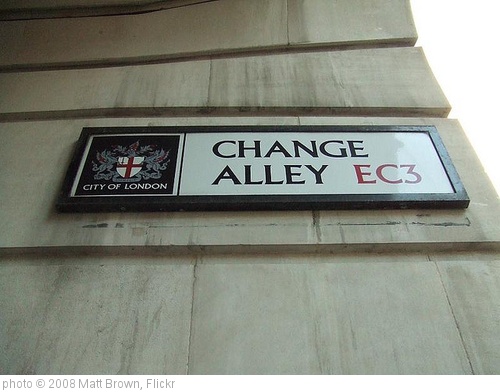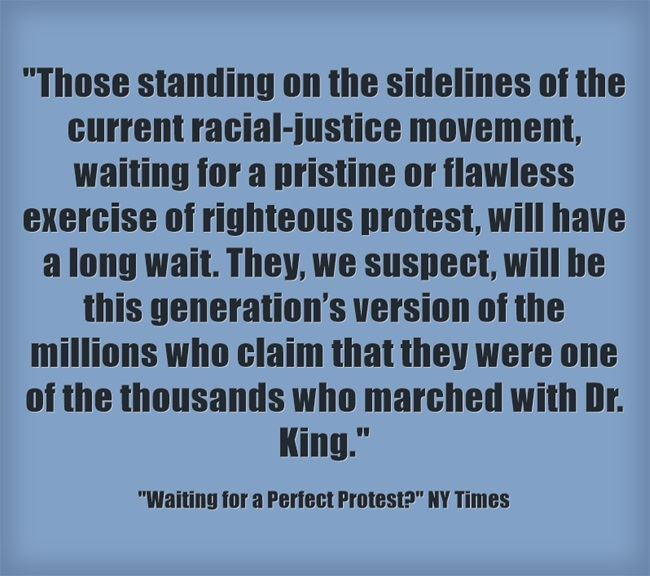I’ve written A LOT about how to help students enhance their feelings of intrinsic motivation and help them want to change their behavior and attitudes.
Many of us would also like to make change occur in our schools, districts, and in broader policy areas. Obviously, that’s a particular interest of mine, too, after spending nineteen years as a community organizer prior to becoming a teacher.
Here’s the beginning of a list my choices for The Best Posts & Articles On Building Influence & Creating Change (you might also be interested inThe Best Resources Sharing The History Of Teens Organizing For Justice, The Best Websites For Learning About Civic Participation & Citizenship), as well as The Best Ways To Talk With Someone Who Disagrees With You:
I’ve got to start with must-read review of Robert Caro’s new biography of LBJ, written by David Frum and appearing in Newsweek, Read Book, Obama!
I’ve written a number of posts linking to additional resources, including:
Do You Want To “Build Influence”?
The Art And Value Of Compromise
The Best Sites To Learn About Saul Alinsky
Is A Great Passage For Learning How To Make Change
Dancing Guy: Why teachers should ignore his advice
Knowledge Isn’t Power — “Power is Power”
Importance Advice For Anyone Who Wants To Be Effective At Making Change
If You Want To Influence People To Change, Then You Want To Read Atul Gawande’s New Article
Why we can’t all get along over school reform
The Role Of Technology In Progressive Social Change
Teachers Must Help Determine New Ideas Being Implemented is one of my posts at Education Week Teacher.
What “School Reformers” — And All Of Us — Can Learn From Pope Francis About Creating Change
TV Shows: Thinking “West Wing” In A “House Of Cards” World is by Alexander Russo. The Melian Dialogue is a classic tool used by community organizers to illustrate the importance of living in the world “as it is” instead of “as we’d like it to be,” and Alexander effectively uses the contrast in the two TV shows to demonstrate the same lesson about making political change.
This Is The Best Piece I’ve Seen On The Role Of Social Media In Making Social Change
Another Reason Why We Need More Organizing, Not More Dialogue, In Education Policy Fights
How NOT To Make Public Policy Change Happen
Why Reformers Are Being Beaten Up by Teachers is by John Thompson.
The Onion Explains Perfectly The Difference Between “Mobilizing” & “Organizing” For Change
Interesting Video Of Opposition Party Leader In Spain: “He was always right, though nobody knew”
Bridging the Naughty-Nice Divide in Education Debates is a very thoughtful post by Marilyn Anderson Rhames. Her advice on respectful participation in the school reform rhetorical wars make a lot of sense, and it would be good if many writers/bloggers heeded it. However, those who are actively involved “on the ground” in organizing campaigns probably want to not follow it to the letter. I explain why in other posts on this list.
Quote Of The Day: “Thinking About ‘What Works’”
Policy Decisions Must Be ‘Done With’ Teachers, Not ‘Done To’ Them is my two-part Ed Week series discussing how teachers can effectively engage in educational policy decisions.
Another Study Finds Listening With Ears, & Not Mouth, More Effective
No Surprise To Organizers: Two-Way Conversation More Successful Than One-Way Communication In Changing Minds
Excellent New Books & Booklets On Community Organizing
Really Interesting NY Times Column On The Value Of Being “Two-Faced”
The Art of the Protest is from The New York Times.
President Obama On The Role Of Stories In Developing Relationships & Making Change
Public opinion matters less, in these moments, than public pressure. Broad but weak support often loses to intense, concentrated opposition
— Christopher Hayes (@chrislhayes) January 31, 2017
From Protests Past, Lessons in What Works is from The New York Times.
4 rules for making a protest work, according to experts is from Vox.
Two Excellent Resources On Effective Ways To Influence Your Congressperson
New Education Ideas Must not be ‘Just for the Sake of Change’ is a series in my Education Week Teacher column.
Has Protesting Become Too Easy? is from Slate.
Reform Lessons from Skeptical But Not Cynical Veterans is by Larry Cuban.
Wisdom From Nobel-Prize Winner Daniel Kahneman On Creating Change
Is There Any Point to Protesting? is from The New Yorker.
Colin Kaepernick and the Myth of the ‘Good’ Protest is from The NY Times.
Waiting for a Perfect Protest? is also from The NY Times. Here’s an excerpt:
“The Banana Principle” Is A Useful Way To Talk About – & Implement – Change
The Best Articles & Videos Showing How Parkland’s Teens Are Responding To Tragedy.
We Need To Talk More About Schools As Mediating Institutions
What Gun-Control Activists Can Learn From the Civil-Rights Movement is from The Atlantic.
These kind of narrow place-based strategies r doomed to fail if not connected to a broader-based power based organization- so many problems facing neighborhoods have their causes far beyond neighborhood boundaries https://t.co/l9crSszPzJ
— Larry Ferlazzo (@Larryferlazzo) April 9, 2018
Good Advice On How To Increase Your Influence – Anywhere
What A Great Article On The Power Of Being A Good Listener
New Study Suggests That It Takes 25% Of People To Turn Minority Opinion Into Majority One
This Is A Fascinating & Useful Study: Charts Are More Convincing Than Text
Advice On How To Influence People (And How Not To)
What Civil Rights History Can Teach Kavanaugh’s Critics is from The NY Times.
Three Lessons for Winning in November and Beyond: What union organizers can teach Democrats. is also from The NY Times.
Additional suggestions are welcome.
EXCELLENT SHORT CLIP OF FORMER PRESIDENT OBAMA DISCUSSING THE IMPORTANCE OF STORIES & RELATIONSHIPS
When Civility Is Used As A Cudgel Against People Of Color is from NPR.
The ‘3.5% rule’: How a small minority can change the world is from the BBC.
Dolores Huerta: Revolution in the Fields/Revolución en los Campos Community Engagement Resource is from The Smithsonian.
In-Person Protests Are Stronger Than Online Activism is from The Atlantic.
The Magic Number Behind Protests is from NPR.
NEW ARTICLE ON ARISTOTLE & PERSUASION WOULD BE GREAT FOR STUDENTS – & TEACHERS – TO READ
Good NY Times Article On What’s Required For Effective Grassroots Political Change
A GOOD “FRAME” FOR WHEN OLDER STUDENTS SPEAK TO YOUNGER ONES
A Look Back: “Idolizing Just One Person Undermines The Struggle”
This Is How To Change Someone’s Mind: 6 Secrets From Research is from Barking Up The Wrong Tree.
In Times of Disagreement, How to Find Unsticking Points is a pretty interesting book excerpt. I’ve previously written about this idea at No Surprise To Organizers: Two-Way Conversation More Successful Than One-Way Communication In Changing Minds.
Stacey Abrams: I Know Voting Feels Inadequate Right Now is from The NY Times.
Why Protests Work is from The Atlantic.
Don’t Be Afraid to Virtue Signal — It Can Be a Powerful Tool to Change People’s Minds is from TIME.
An Experiment in Wisconsin Changed Voters’ Minds About Trump is from Atlantic.
Hi, There. Want to Triple Voter Turnout? is from The NY Times.
6 Black women organizers on what happened in Georgia — and what comes next is from Vox.
Grassroots Organizers Flipped Georgia Blue. Here’s How They Did It. is from TruthOut.
I THINK THIS QUOTE DESCRIBES THE ESSENCE OF EFFECTIVE COMMUNITY ORGANIZING AND EFFECTIVE TEACHING
Here Are Resources For Learning About The Work Of Stacey Abrams & Her Colleagues
How ‘Good’ Social Movements Can Triumph over ‘Bad’ Ones is from Scientific American.
WORKING THROUGH POLITICAL DIFFERENCES THROUGH CONFLICT, NOT KUMBAYA
From Conversation to Revolution is from The New Yorker.
Why Democrats Keep Losing Culture Wars is from Five Thirty Eight.
The Essentials: Persuading People is from The Harvard Business Review.
Persuading Your Team to Embrace Change is from The Harvard Business Review.
I Was Wrong About Why Protests Work is from The NY Times.
When I was a community organizer, the smartest elected officials would basically say, “I agree with you. Please now go and put public pressure on me.” https://t.co/B1ZN8Rh2Kc
— Larry Ferlazzo (@Larryferlazzo) August 26, 2022
Martin Luther King, Jr.’s response to those who called *him* and his movement “divisive”: “[W]e … are not the creators of tension. We merely bring to the surface the hidden tension that is already alive. We bring it out in the open, where it can be seen and dealt with.” (1963)
— Ken Levy🇺🇸 ☮️ (@KenLevy2020) September 4, 2022
As someone who was a community organizer 4 19 yrs prior 2 becoming a tchr, I can strongly recommend this piece as an accurate analysis thru an organizer lens ——-Opinion | A New Playbook for Saving Democracy, Defeating Fascism and Winning Elections https://t.co/LQyPsq5GI8
— Larry Ferlazzo (@Larryferlazzo) October 22, 2022
Tired of arguing with bigots? Here’s a new type of conversation. https://t.co/g12Gc90feV
— Vox (@voxdotcom) February 17, 2023
The Smithsonian Learning Lab has a collection of resources for teaching about “activism.”
This is definitely one of the better TED-Talks I’ve heard. You can read the transcript here.
The Most Successful Approaches to Leading Organizational Change is from Harvard Business Review.
Ahead of Earth Day on Saturday, BBC Future investigates whether climate protest can force change. https://t.co/EAMOwi1M2J
— BBC Future (@BBC_Future) April 21, 2023
‘The Persuaders’ examines the front line fight for hearts, minds and democracy is from NPR.
How the battle for democracy will be fought — and won is from The Washington Post.
QUOTE OF THE DAY: BE A “DISHABITUATION ENTREPRENEUR”
Even though a lot in this piece from The Harvard Business Review is not particularly helpful or interesting, it doesn’t have some useful tidbits: How to Become More Persuasive at Work.
This classroom perspective is similar to how successful community organizing works – focus on leadership development instead of specific neighborhood problems, & then efforts 2 resolve those problems can be more effective & long term https://t.co/HA0I4qK4fi
— Larry Ferlazzo (@Larryferlazzo) March 29, 2024
You might want to look at my 900 other “The Best…” lists and consider subscribing to blog.





Recent Comments